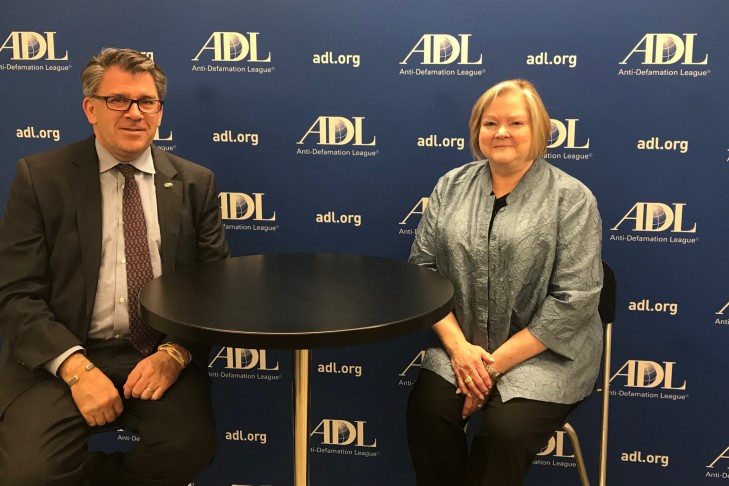On Oct. 12, 1998, Matthew Shepard died and became everyone’s son and brother. Beaten and tortured in Laramie, Wyo., because he was gay, Shepard was just 22 years old when he died six days later in Fort Collins, Colo. His father, Dennis Shepard, said his son was covered in blood except for the spot where a tear had run down his face. The two men who bludgeoned him to death received consecutive life sentences.
Matthew’s death roiled the nation and the world, exposing hate crimes targeted at LGBTQ victims. Two months after Matthew’s death, his parents, Judy and Dennis Shepard, embarked on a lifelong quest to keep their son’s memory alive and founded the Matthew Shepard Foundation.
Judy Shepard became an LGBTQ activist traveling the world to advocate for gay youth. Shepard was also one of the driving forces behind the Matthew Shepard and James Byrd Jr. Hate Crimes Prevention Act. Two white supremacists tied James Byrd Jr., an African-American man, to the back of a pickup truck in Jasper, Texas, and dragged him until he was decapitated.
The Shepard-Byrd Act expands protections offered under the 1968 U.S. Federal Hate-Crime Law “to include crimes motivated by a victim’s actual or perceived religion, national origin, gender, sexual orientation, gender identity, or disability.”
With Judy and Dennis Shepard by his side, President Barack Obama signed the act into law in 2009 after a decade-long battle. Judy Shepard recalled that day as one in which “the room was so accepting and loving.”
Last month, Shepard was in Boston as part of the Anti-Defamation League’s “Breaking Barriers Speaker Series.” Shepard also spent two days in the Boston area visiting Stoneham High School, Dover-Sherborn High School and Massasoit Community College. Shepard, who described herself as an “introvert who is off the scale,” said she necessarily found her voice in the wake of Matthew’s death.
In her hour-long conversation with the ADL’s New England regional director, Robert Trestan, Shepard talked about her gradual shift in becoming a public person as a “learning process. If Matt had not died, I would be the PFLAG mom making cookies, not the PFLAG mom at the podium. But I am compelled to do this work for Matt, for his friends and his peers because it’s what he would want me to do.”
Shepard recounted to her audience the moment she realized what happened to her son. She had been called back to the United States from Saudi Arabia, where her husband worked for an oil company, and in the first American airport in which she landed, she saw her son’s picture on the front page of a newspaper. “It was the first inkling I had that something was very wrong,” she said. “Until that point, we didn’t know exactly what had happened.”
Shepard told her story dry-eyed until Trestan asked her to describe Matt. In a shaky voice that brought on tears, she said Matt loved life. He loved acting in community theater. He also loved to sing despite having less than perfect pitch. Shepard said it was crucial to humanize her son, as well as to associate a face with an issue. “It changes everything,” she said. “Just like it was important to put Matt and James’ names to hate legislation. It’s important to know what it is. It’s also hard to hate personal. If you know your neighbor is gay and you are a thinking person, you should not be a homophobe.”
For organizations like the ADL, Matthew Shepard’s death was a turning point in advocating for LGBTQ hate crime legislation. “Unfortunately,” said Trestan, “he was not the last gay man to be murdered for who he was.”
Shepard described her last 20 years of activism as years that have been “alternately challenging, frustrating, sad and joyous work.” Among her joys was noting the proliferation of the GSA Network in so many of the high schools she has visited. She also pointed out the popularity of “The Laramie Project.” The play, written by the Tectonic Theater Project, dramatizes over 200 interviews with Laramie residents about what happened to Matthew Shepard, as well as their feelings about the gay community. “It’s about acceptance not only in the community, but in the world,” Shepard said. “It’s been translated into multiple languages and is part of many middle-school curriculums. Now we can talk about these issues in a public forum and see changes happening.”
But there is work still to be done. Shepard is disheartened that “much of the progress we made in the gay community has been turned backward in the last year. It’s very frightening for me. And it’s not just happening in the gay community, but in every marginalized and minority group in the country. Look at the statistics about hate crimes against transgender women of color; they’re very high. As are hate crimes against Muslims.”
Shepard advised young people to keep telling their stories and register to vote. She encouraged them to work on a campaign, and when the time comes to run for office. “We had eight years of a president who understood social injustices and hate crimes,” she said. “I tell young people to carry those eight years of acceptance with them into the future. This is not just about the gay community; this is about everybody feeling safe and respected. I tell them the important thing about Matthew Shepard is that he was not my gay son, but my son who happened to be gay.”



